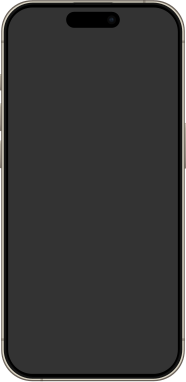The Eternal Debate: iPhone vs. Samsung - Which Reigns Supreme?
The Eternal Debate: iPhone vs. Samsung - Which Reigns Supreme?
iPhone
The iPhone is a line of smartphones produced by Apple Inc. that use Apple's own iOS mobile operating system. The first-generation iPhone was announced by then–Apple CEO Steve Jobs on January 9, 2007. Since then, Apple has annually released new iPhone models and iOS updates. As of November 1, 2018, more than 2.2 billion iPhones had been sold.
iPhone
 Phone 15 Pro
Phone 15 Pro
Samsung Galaxy
Samsung Galaxy (Korean: 삼성 갤럭시; stylized as SΛMSUNG Galaxy since 2015 (except Japan where it omits the Samsung branding),[2] previously stylized as Samsung GALAXY; abbreviated as SG) is a series of computing and mobile computing devices that are designed, manufactured and marketed by Samsung Electronics. The product line includes the Samsung Samsung Galaxy S series of high-end phones, Samsung Galaxy Z series of high-end foldables, Samsung Galaxy A series of Mid-range phones, the Samsung Galaxy Book, the Samsung Samsung Galaxy Tab series, the Samsung Galaxy Watch, the Samsung Samsung Galaxy Buds series and the Samsung Samsung
other.
Design and Build Quality:
Apple's iPhone has long been celebrated for its sleek, minimalist design and premium build quality. With each new iteration, Apple manages to refine its design further, offering devices that are both elegant and durable. The use of high-quality materials such as glass and aluminum gives the iPhone a premium feel that is hard to match. On the other hand, Samsung's Galaxy series has also made significant strides in design and build quality over the years. Samsung has experimented with different materials and finishes, offering devices with curved glass edges and glossy finishes that appeal to users looking for a more futuristic aesthetic. While Samsung's devices may not always feel as premium as the iPhone, they often offer more variety in terms of design choices.
Operating System and User Interface:
One of the most significant differences between the iPhone and Samsung devices lies in their operating systems and user interfaces. The iPhone runs on Apple's iOS, known for its simplicity, fluidity, and intuitive design. iOS offers a curated experience with strict guidelines for app developers, resulting in a cohesive ecosystem where everything just works together seamlessly. Samsung, on the other hand, uses Google's Android operating system overlaid with its own custom skin, One UI. While One UI has come a long way in terms of design and functionality, it can sometimes feel cluttered and overwhelming compared to the clean and straightforward interface of iOS. However, Android offers users more flexibility and customization options, allowing them to tailor their experience to suit their preferences.
Camera Performance:
Both Apple and Samsung have invested heavily in camera technology, resulting in some of the best smartphone cameras on the market. The iPhone is known for its consistent image quality, natural color reproduction, and impressive computational photography features. Apple's dedication to software optimization ensures that even older iPhone models can still capture stunning photos and videos. Samsung, meanwhile, has made strides in pushing the boundaries of smartphone photography with features like multiple lenses, night mode, and AI enhancements. Samsung's cameras often excel in low-light conditions and offer a range of shooting modes and settings for users to experiment with.
Ecosystem and Services:
One of Apple's biggest strengths lies in its ecosystem of products and services. The iPhone seamlessly integrates with other Apple devices such as Macs, iPads, and Apple Watches, allowing users to enjoy a cohesive experience across all their devices. Apple's services such as iCloud, Apple Music, and the App Store further enhance the overall user experience. Samsung has also been expanding its ecosystem with products like the Galaxy Watch, Galaxy Buds, and SmartThings smart home platform. While Samsung's ecosystem may not be as tightly integrated as Apple's, it offers users more choice and flexibility when it comes to hardware and services.
Conclusion:
In the end, the choice between iPhone and Samsung ultimately comes down to personal preference and priorities. Apple's iPhone offers a refined and seamless experience with unmatched integration into its ecosystem of products and services. On the other hand, Samsung's Galaxy series provides users with more variety in terms of design, features, and customization options. Whether you're a die-hard Apple fan or a loyal Samsung supporter, both brands continue to push the boundaries of innovation and set the standard for what a smartphone should be. With each new release, the iPhone vs. Samsung debate rages on, ensuring that consumers will always have plenty to discuss and compare in the ever-evolving world of smartphones.
References
edit
- ^ "Samsung galaxy phones sold 2 billion users unpacked 2019". 20 February 2019. Retrieved 1 January 2021.
- ^ "Samsung's rebranding to Galaxy is total in Japan – AndroidAuthority on April 27th 2015". 28 April 2015. Archived from the original on 27 June 2020. Retrieved 25 June 2020.
- ^ "Samsung Galaxy Chromebook review". www.tomsguide.com. 9 February 2021. Retrieved 1 June 2021.
- ^ "Samsung's $549 Galaxy Chromebook 2 will be available on March 1st". www.theverge.com. 16 February 2021. Retrieved 1 June 2021.
- ^ Friedman, Alan (29 June 2019). "Happy 10th anniversary to the Samsung Galaxy, Sammy's first Android phone". PhoneArena. Retrieved 4 October 2023.






































































